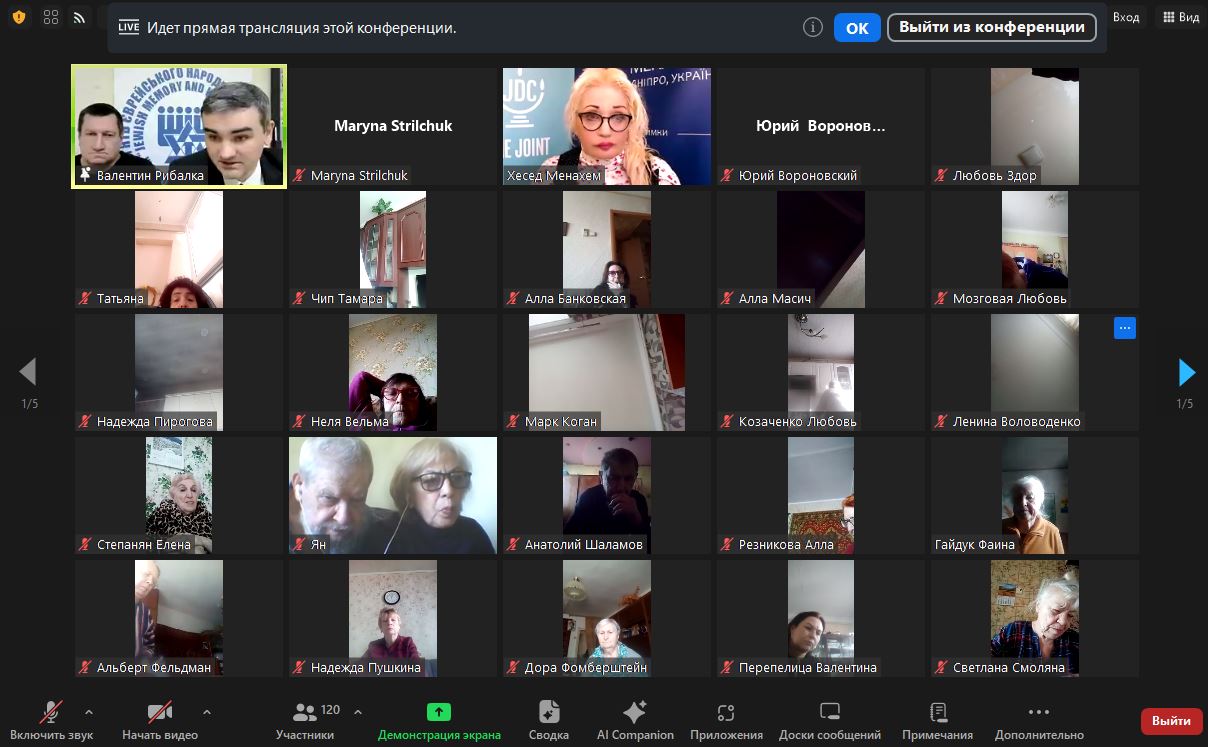On November 22, 2024, Museum “Jewish Memory and Holocaust in Ukraine” together with the Charitable Foundation “Hesed Menachem” within the framework of the project “Topical Conversation” held a meeting with the Head of the Exhibition and Publishing Department of the Museum of the Holodomor Resistance (Dnipro) Valentyn Rybalka. The event was moderated by the Deputy Director for Scientific Work of Museum “Jewish Memory and Holocaust in Ukraine” Dr. Yehor Vradii.
The meeting itself was dedicated to the tragic events of the first genocide on Ukrainian lands in the 20th century – the Holodomor of 1932-1933. V. Rybalka is the author of many museum projects dedicated to the study and memorialization of this dramatic page in the history of Ukraine. In particular, in 2016-2017 he was one of the co-curators of the creation of a block of the permanent exhibition dedicated to the Holodomor and other famines of the 1920s-1930s in Ukraine in our Museum.
During the Friday meeting, V. Rybalka, despite the limited time format, spoke about the prerequisites, main stages and most dramatic aspects of the large-scale tragedy, the victims of which, according to the most conservative estimates, were 4 million Ukrainians of various ethnic origins and religions. The participants had the opportunity to familiarize themselves with the testimonies of contemporaries of the tragedy: not only from among the residents of Ukraine, but also foreigners who were in the territory of the then Ukrainian SSR in the early 1930s.
No less interesting than the speech of the esteemed speaker was the discussion of the audience, who aptly noted the parallels between the events of more than 90 years ago and the present, as well as how the organizers of other genocides (the Holocaust, the Kyrymla genocide, etc.) used hunger to subjugate and destroy national groups. Therefore, even after many decades, preserving the memory of the terrible pages of history is extremely important. After all, it is it, as well as the awareness of the experience of the past, that allows us to avoid the endless and at the same time painful repetition of unlearned lessons.

